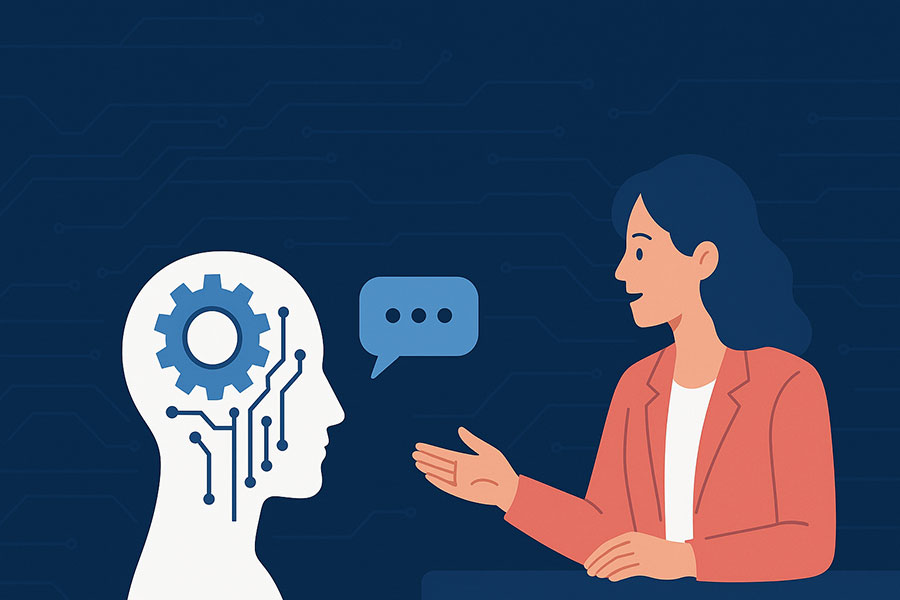
Here are a few reasons why AI will not replace coaches:
AI and Coaching: Why Human Connection Still Matters
The most obvious reason is human connection. Although some may argue that even this could be “hacked” (think AI boyfriends and girlfriends)…
The subjective value of human connection is hugely consequential – not just for high performance and self-actualization, but for our fundamental survival needs.
If social media hasn’t made this clear already, the reopening after the COVID shutdown reminded us how much we need each other – not through a screen, but physically in each other’s immediate orbit.
The felt experience of another human’s presence is primal and irreplaceable.
AI vs Coaching: The Knowledge–Behavior Gap
Since the arrival of the internet, we’ve been pooling the aggregate of human knowledge into one space, and the accessibility of that knowledge has become immediate.
Large language models have taken this even further. Our ability to find facts and information about almost anything is making a mockery of much so-called “knowledge work.”
But people often mistake coaching as knowledge- and fact-based. While coaching may touch on knowledge, its primary focus is behavior change.
A key attribute of effective coaching is comfort in the space of not knowing – as opposed to striving for more knowing.
Or, as Derek Sivers put it: “If more information was the answer, we’d all be billionaires with perfect abs!”
If anything, AI tools have widened the gap between what we know and how we behave. Coaches bridge this gap – helping people turn knowledge into meaningful action.
It’s not about adding more facts. It’s about helping people take their own advice and change their behaviors.
Coaching and Accountability: What AI Cannot Do
The other day, I was walking with my wife to the gym – we were chatting with ChatGPT, asking for advice on our workout routine.
As we got closer, workout plan at the ready, we asked AI whether we should have our coffee before or after the workout. Excited, we waited for the perfect answer.
The combined genius of all human minds and the computing power of ChatGPT went to work.
Instantly, it came back with this golden nugget:
ChatGPT: “Definitely have the coffee after your workout. It’s best to naturally elevate your heart rate rather than through caffeine. Enjoy your coffee post-workout—this will be much better for you!”
Without even thanking the “smartest person in the world” on my iPhone, we ignored the advice and did the opposite.
Why? Because there was no accountability. AI is a tool I can control, ignore, pick up, or put down.
Coaching, on the other hand, carries transformative human presence. A coach holds you accountable in ways a bot never can. That accountability – and the relationship behind it – is very hard to hack.
Why People Will Still Choose Human Coaches in an AI World
Like many tools disrupted or replaced by new technologies, some human practices resist replacement against rational expectations.
Books outlasted Kindles. Writing and drawing outlasted iPads. Effectiveness alone doesn’t determine what gets replaced.
These patterns remind us why we do these things in the first place. Just because AI can write a better book doesn’t mean humans will stop writing – because people like writing. The same goes for singing, creating art, and even going to work.
AI has heightened our search for meaning and purpose – and much of that is found in the struggle of our work.
AI will have to work very hard to replace what humans like to do. And the beautiful truth about coaching is this: people like to do it, and people like to receive it.
The Future of Coaching in the Age of Ai
So, what does the future hold for coaching in the world of AI? Likely disruption.
But like any great coach, let’s not get stuck in certainty. Let’s embrace the unknown and the new possibilities it will bring to our profession.




